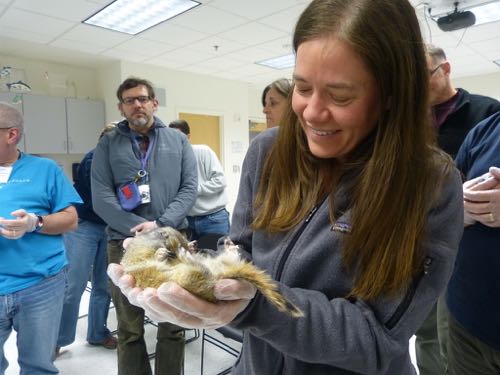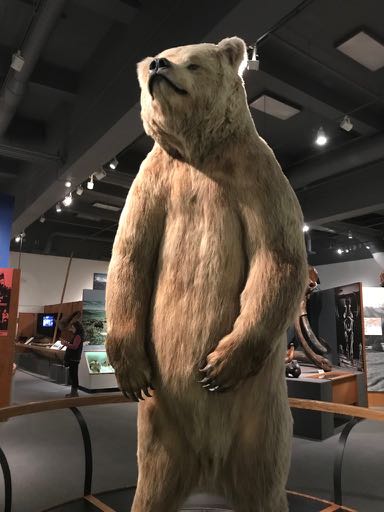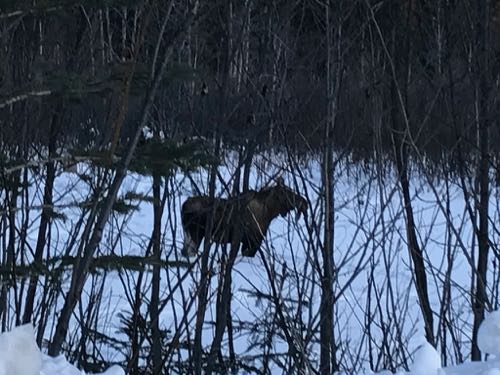You ever have one of those days… that are right in your wheelhouse??? Well day 3 of PolarTREC Orientation was just one of those days for me. The day began with a guest lecture by Rick Thoman who is a Scientist for the National Weather Service (NWS). In this lecture we learned about some of the ways scientists know that Climate ChangeA statistically significant variation in either the mean state of the climate or the mean variability of the climate that persists for an extended period (typically 10 years or more). Climate change may result from such factors as changes in solar activity, long-period changes in the Earth's orbital elements, natural internal processes of the climate system, or anthropogenic forcing (for example, increasing atmospheric concentrations of carbon dioxide and other greenhouse gases). is actually happening. From normal, to ranges of normal and beyond we were exposed data that was pretty scary. After lunch, the famous Alaskan Ground Squirrel, how would you like to have your body temperature drop to -2 Celsius? Well, that is exactly what the Ground Squirrel does to hibernate through the Alaskan winters. Here is something my students might be interested in a new way to learn, being able to learn while you have no brain activity at all (Whoa)! The researcher, Dr. Jeanette Moore, of the University of Alaska Fairbanks needs to acclimate the squirrels to movement, so they don’t wake up during examination. This research has such a far reach into so many areas, it was really fascinating, these little creatures may be the future of space travel and heart transplants. Could you imagine being put into hibernation for the trip to Mars?

From there we traveled to the Museum of the North here on campus. The first exhibit I stopped at brought back a heart pounding memory, this summer I was bluffed charged by a black bear, a huge, and I mean huge brown bear. Could you imagine seeing this guy charge at you?

Ever imagine what the Earth sounds like? Well we got to hear her speak today. Composer John Luther Adams developed “The Place Where You Go To Listen” he has taken an algorithm and imported things like earthquakes, wind speed, Aura Borealis strength and turns them into sound waves. A very peaceful place to sit and reflect on everything I have learned so far during orientation.
Audio File of the Place to listen
The night finished up with a very adventurous drive to the Chena Hot Springs. It was sort of like an episode of Ice Road Truckers, which meant for me, the driver, no braking! Luckily the road was fairly straight and the thing we had to be most aware of were those Charismatic Mega Fauna, you guessed it, dun,dun,dun, the Alaskan Moose. Luckily we came upon this big female while she was walking in a field.



Comments